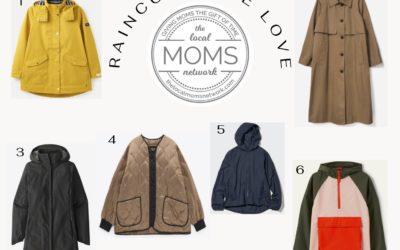
During these busy, stressful times, it can be really hard to take care of your own health. Our kids’ emotional, educational, physical AND other needs can take up 150 percent of our time. But skipping basic self-care can be counter-intuitive. Any mom who has taken 30 minutes to go for a run, relax with a bath, or curl up with a good book will tell you they feel more ready to face everything their day throws at them, if they take that time.
But self-care won’t only make you a better, calmer mom—it could save your life. If you’ve been putting off basic doctor’s appointments during the pandemic, like your annual mammogram, you’re not alone—but we’re asking you, mom to mom, to prioritize them. We spoke to Reni Butler, MD, breast imager with the Department of Radiology & Biomedical Imaging at Yale Medicine and Yale New Haven Hospital, about this important topic.
What should women be doing regularly to reduce their chance of dying of breast cancer?
The best way to minimize the risk of breast cancer death is to get an annual mammogram. I would encourage women to seek out a facility that provides the newest technology – 3D mammography. It increases the likelihood of finding a small early breast cancer, and it also significantly decreases the likelihood of being called back for a “false alarm”. I would also advise women to see their primary care physician for an annual clinical breast examination.
What are the best ways to lower your risk of cancer?
A healthy lifestyle, including a healthy diet, exercise, and moderation of alcohol intake, contributes to a long-term healthy lifestyle. However, even the healthiest lifestyle cannot prevent every case of breast cancer. When breast cancer arises, it’s critical that it be detected early when there is the greatest opportunity for cure. I would emphasize that a regular screening mammogram and, for women with dense breasts, a supplemental screening ultrasound is the best way for women to protect their breast health.
What has the effect been of COVID on women and cancer prevention?
In the early months of the pandemic, all elective examinations, including screening mammograms, were deferred. Since June, however, we have opened up our Breast Imaging Center and welcomed women back with multiple safety precautions in place. Patients and staff are screened, masks are required, appointments are spaced apart to ensure social distancing, and extensive sanitizing protocols are in place. I am concerned that delaying screening may allow breast cancer to progress, and I would like to reassure women that they can obtain their mammogram safely. Please, call your local breast imaging facility and inquire about their safety procedures and, once you’re comfortable, please, schedule your screening mammogram.
What are the biggest myths you hear about breast cancer?
Myths include:
- There is no history of breast cancer in my family, so I don’t think I need a screening mammogram.
- My doctor checked my breasts and said my exam was normal, so I don’t think I need a screening mammogram.
- My breasts don’t feel dense, so I don’t think I have dense breasts.
- I am getting older, so I no longer need a screening mammogram.
Here are the Facts:
- The majority (70% – 80%) of breast cancers are found in women with NO family history of breast cancer. Hereditary breast cancers account for only about 10% of all breast cancers.
- The majority of breast cancers discovered by mammography cannot be felt on a breast exam. Cancers detected by mammography are smaller and earlier stage compared to cancers detected as a lump, which means they can be treated with less aggressive breast conserving surgery and minimal other treatment. Women with early stage breast cancer have improved survival. Having an annual screening mammogram reduces the likelihood of dying from breast cancer by up to 40%.
- Unfortunately, we cannot determine if a woman has dense breast tissue based on her breast exam. This must be determined mammographically and will be included in your mammography report. It is important to know if you have dense breasts for 2 reasons:
- 1). Having dense breasts increases your risk of breast cancer compared to women with non-dense breasts, and
- 2). If you have dense breast, you are eligible for supplemental screening with ultrasound and/or MRI, which improves the chances of detecting breast cancer early.
- Women’s life expectancy and quality of life in the elderly years have increased. Guidelines for screening mammography in older women are being revisited. Studies show that older women benefit from screening mammography at any age as long as they don’t have other serious medical conditions.
Berry Caprese Salad
Summer is synonymous with salad, and now salad is synonymous with Kathleen Ashmore, Tik Tok Star and Local Moms Network Food Contributor. Her "Hungry Lady Salad" series is turning even salad skeptics into believers, and this Berry Caprese Salad is her latest...
Sparkling Sweet Tea Sangria for Summer
Cheers to Summer! We love a good Sangria in the warmer weather, and depending on the setting or food pairing, have served it in white, red or rose varieties. This Sparkling Sweet Tea Sangria from The BakerMama is not only refreshing, but decorated with a patriotic,...
Top Rain Jacket Picks for Moms
The days are getting longer, flowers are blooming…Spring is here (finally)! But just when temperatures start rising and the deep winter brain fog starts to clear, the rain starts. And it just doesn’t stop. We’re here to help you combine some retail therapy with a...



